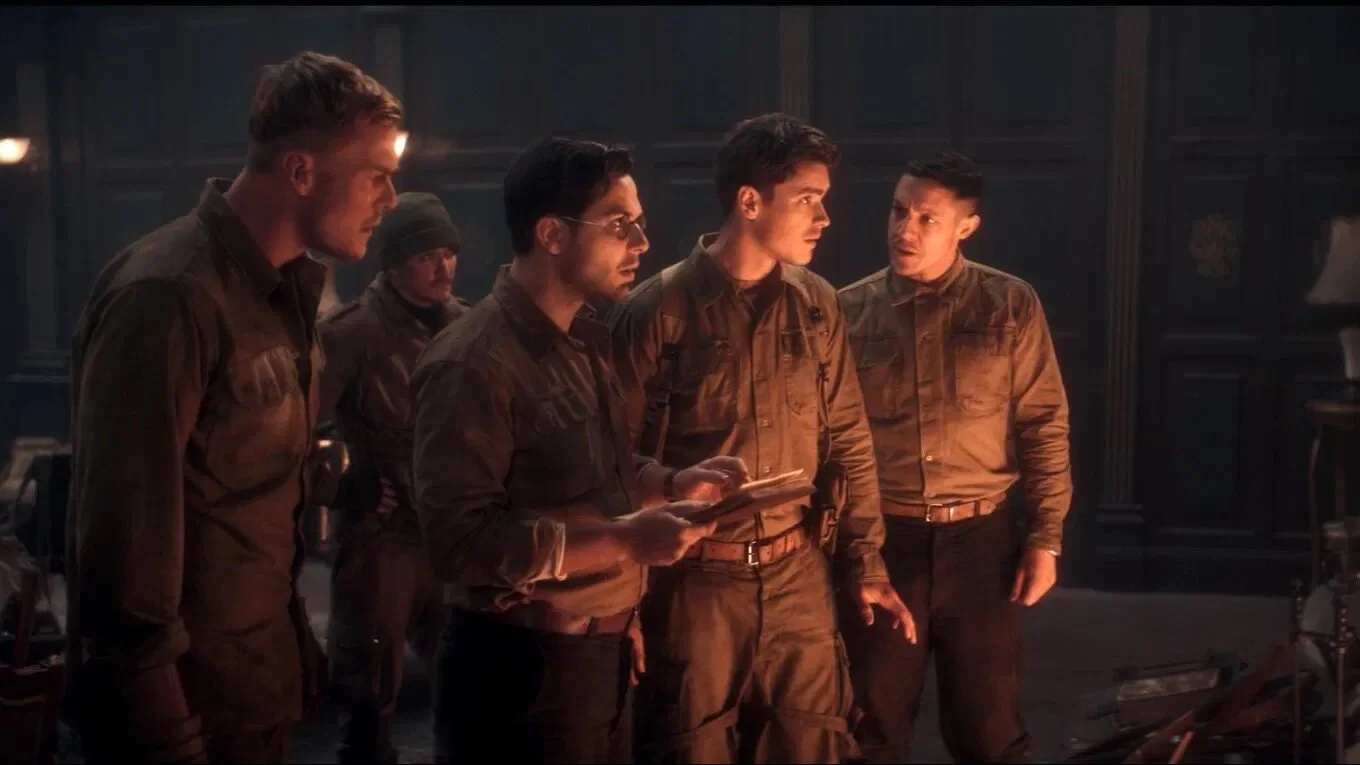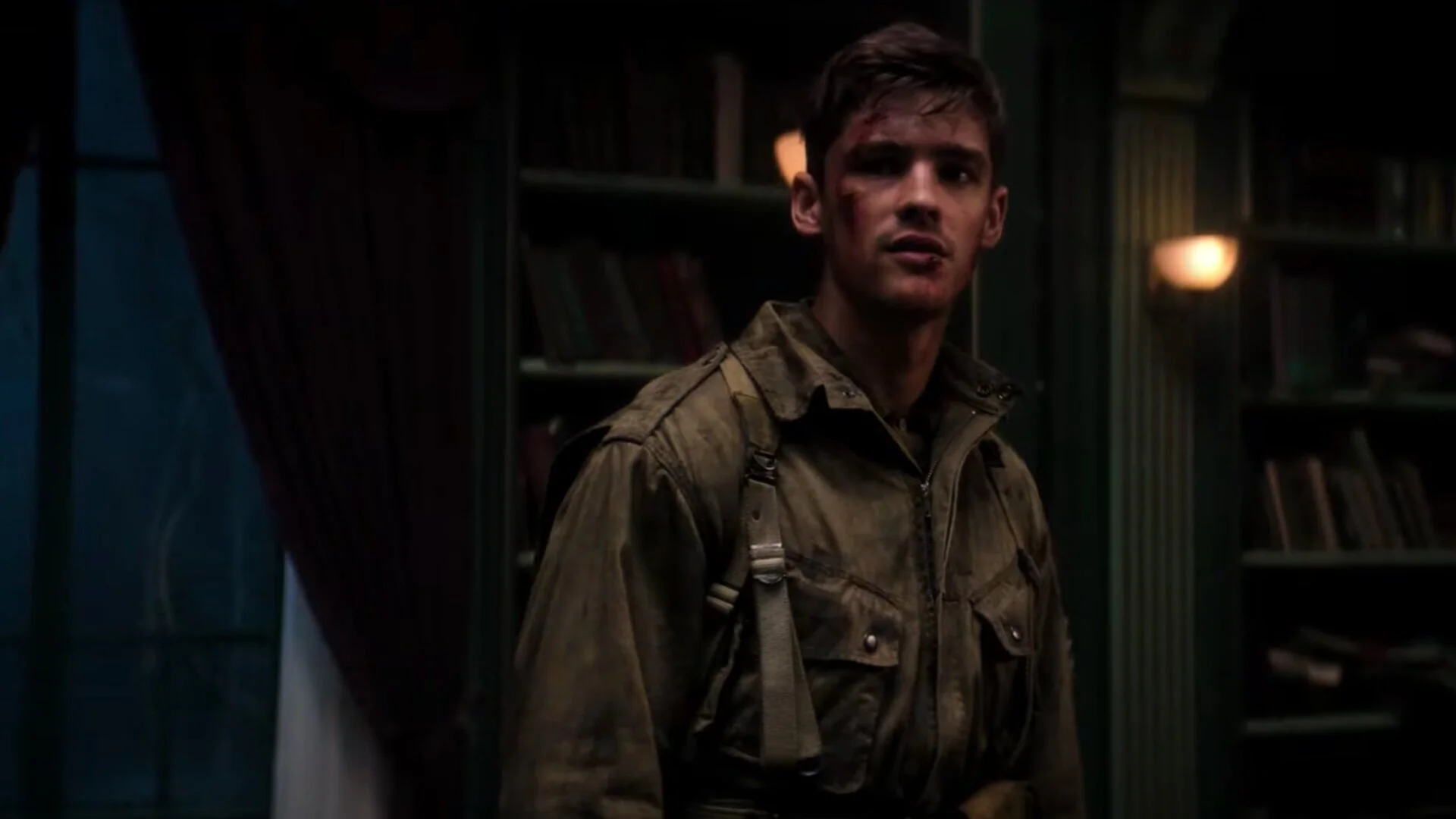Film Review — "Ghosts of War"
2004 was a pretty wicked year for horror. For one thing, we got Saw, the film that made me want to make films. So there’s that. Then there was also The Grudge, Secret Window, 3 Extremes, Godsend, the ill-fated but still fun Alien vs. Predator, Malevolence, the Dawn of the Dead remake, Blade: Trinity, and Seed of Chucky. Just to name a few of the movies I was obsessed with in middle school. But there was another film that had me and my Hot Topic-clad friends in a tizzy. And that would be Eric Bress’ The Butterfly Effect, a time-bending psychological nightmare on celluloid with a killer ending (if you’re watching the Director’s Cut). So it may seem hard to imagine why it took sixteen years for the guy to return to the director’s chair, unless you’ve seen Ghosts of War.
With Ghosts of War, Bress takes us back to World War 2. Of course, it’s not hard to make Nazi-occupied France horrific, but Bress tries to up the ante supernaturally. Here we have American soldiers, ordered to report to a French chateau for the purposes of holding it as a garrison. The house they’re sent to, recently abandoned, is a former bastion for high-ranking Nazis. But the Germans are on their way out, and our boys can’t imagine why. After all, this house contains every luxury imaginable. These American soldiers are practically on vacation in this grand estate. They find themselves completely removed from the perils around them—villages being burned to the ground and Jews on the run through the woods—until the vengeful spirits within the house’s walls awaken…
There’s something rather welcoming about a period haunted house movie, like going home to the gothic literature of yesteryear. Such decor indicates right away that the chateau is full of specters, and the practical lighting add a naturally eerie ambiance to each scene, while Bress gives us the familiar creeps and frights that we’re accustomed to. For the most part it’s fairly typical haunting fare; it takes a while for anything remotely creative to happen. Even the embodiments of the ghosts are done in the routine fashion of today: stark grey skin, monstrous veins, pitch black eyes, and chasmic mouths from which nothing but shrieks of anger and anguish can escape. Something awful happened to the dead folks on this rural property, and it’s up to this band of soldiers to figure out what happened.
The cast is solid enough. Sean Astin is a clear standout as the smart one of the bunch. Astin carries his character with a brainy charm, and he delivers his lines with a cadence that feels appropriate for the person and place. As a side note, an issue I sometimes have with performances in/the casting of period films is that some actors just don’t seem to belong. What I mean is: some actors (Brenton Thwaites here unfortunately being one) have a very modern sensibility. Others have a timelessness to them. Astin, thankfully, is one whose presence works. Along with him, the MVP of the picture is Kyle Gallner as the group’s moody sharpshooter. Gallner is one of those actors you can always count on. He often takes two-dimensionally written characters and brings them to life with grit and tenacity—and his performance in Ghosts of War is no exception. Even when the film is treading into generic waters, at least Gallner is right there doing something interesting.
Then there’s Theo Rossi and Alan Ritchson, who are both undeniably… in attendance.
Funnily enough, my gripes about certain actors not being good fits for period films is kinda-sorta addressed in this film. And in doing so, Bress also, perhaps inadvertently, rectifies a few historical inaccuracies with a rather jarring left turn that comes in the final twenty minutes. I’m still trying to wrap my head around it, actually. In fact, I had to look up if Charlie Brooker co-wrote the script because from that point on Ghosts of War plays like a rejected Black Mirror draft. The conceit of the “twist” is not necessarily bad. It could’ve landed, if not for the poor lead up to it.
Eric Bress wants to dissect the guilt soldiers of war experience when they are unable to save every life—when they are made to consciously choose which lives are worthier of saving—in a super spooky way. But the haunted house stuff plays out pretty standardly. Too standardly. I mean, absolutely nothing original or fascinating happens in the first seventy minutes or so. And the final twentyish minutes are just downright bewildering. All things considered, Ghosts of War is a movie at odds with itself that could have been a neat episode of an anthology series, if it were more concise and plotted better.




